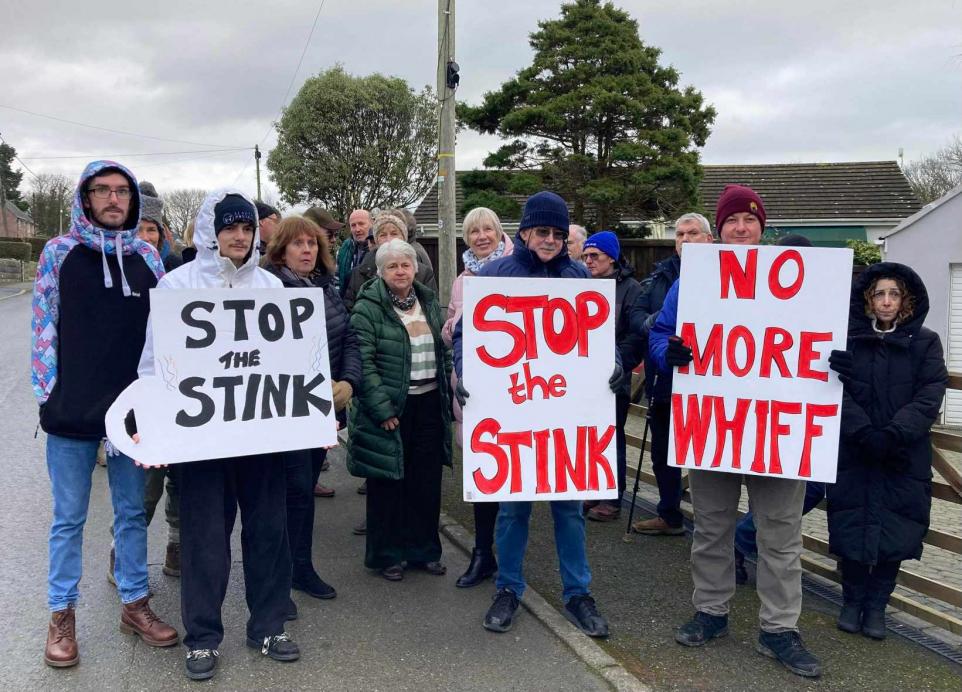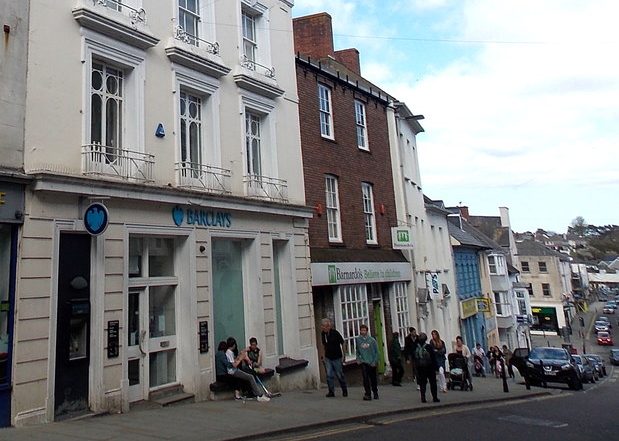Politics
Universal Income plans depend on Westminster

MARK DRAKEFORD’s announcement that the Welsh Government plans to trial Universal Basic Income in a few locations in Wales captured headlines in online media.
The First Minister was variously said to have ‘hinted’ at a trial or announced a trial would take place.
However, nobody should have been surprised by the First Minister’s announcement.
Not only was the policy contained in Labour’s Manifesto for May 6’s election – a bit more than ’a hint’ – but also the principle of holding a trial in Wales was enthusiastically passed by the last Welsh Parliament in September last year. It was a policy in Plaid Cymru’s election manifesto and Labour’s; so, whether Labour went it alone in Government or was in partnership with Plaid Cymru, a trial was on the cards.
WG KNOWS WESTMINSTER HAS THE FINAL WORD
However, whether the Welsh Government can carry out a trial is beyond its immediate control.
Headlines that said the Welsh Government WILL carry out even limited Universal Basic Income trials are also jumping the gun.
When the Senedd debated a motion brought forward by Jack Sargeant MS on September 30, 2020, here is what the Finance Minister Rebecca Evans had to say about it: “The Welsh Government would be open to such a trial taking place in Wales, but we have to be realistic that such a trial would not be possible without the active cooperation of the UK Government, and this is because of the interaction of universal basic income with the tax and benefit system.
“If such a trial were offered, we would also require that conditions were met to ensure that the Welsh Government and this Senedd were able to play a significant role in the design, governance and accountability of any scheme.
“Were the Welsh Government to make payments to individuals without the cooperation of the UK Government, this could simply result in them being ineligible for existing benefits or paying more in tax.
“Aside from the fact that this would not then be a proper test of the effect of an unconditional payment, it would result in the transfer of resources from the Welsh Government to the UK Government.
“And, sadly, our recent experience of the UK Government’s approach to the taxation of our payments to social care workers doesn’t suggest that we should expect their active cooperation.”
In short, the Welsh Government needs Westminster’s ‘active cooperation’ to make a trial possible.
Without Westminster’s cooperation, those who get the Universal Basic Income could (are almost certain to) lose all of their entitlements to other benefits, tax credits, and other means-tested benefits. They could also have to pay tax on it.
WHAT IS UNIVERSAL BASIC INCOME?
Universal Basic Income is not a new idea. Its long history stretches back to antiquity and has been a feature of both romantic and progressive political theory for centuries.
At its simplest, Universal Basic Income does away with a raft of welfare benefits. It substitutes them with a single payment of a fixed amount.
Schemes that guarantee a basic income, short of enough to live on, exist in a few US states and a handful of national economies. However, those are more of an income floor for those who are otherwise dependent on welfare benefits. They are not an actual Universal Basic Income.
A national trial in Finland ended after two years with no definitive finding of better outcomes for those who received UBI over those who did not.
The Covid pandemic increased interest in the idea of UBI in continental Europe. At the same time, the US used a series of relatively modest income replacement initiatives to stop people’s descent into poverty (or into deeper poverty).
The UK’s furlough scheme was – essentially – a basic income guarantee but not genuinely universal in nature.
A major multi-national academic study published in 2017 found that UBI probably improved some health outcomes and increased the likelihood of children attending school.
However, the same report also concluded the evidence for positive outcomes from UBI-type schemes was ‘very uncertain’.
THE COST TO WALES
The main deterrent to a truly Universal Basic Income is cost.
• If a full universal basic income were paid in Wales to all working-age adults and set at the level of the official living wage, the cost would be around £35 billion a year.
• If set at the level of the real living wage, the cost would be around £40 billion.
• For illustration, those figures are around twice the size of the Welsh Government’s budget. As a further comparison, income tax in Wales raises in total just over £5 billion.
• Of course, the costs could be much reduced if universal basic income were paid at a lower rate. However, payment at a lower rate would reduce its attractiveness.
Those last four points are not our own words. They are the Welsh Government’s position as set out in 2020 by its own Finance Minister.
Nothing has changed those figures since September 30, 2020.
They demonstrate the prohibitive and unsupportable cost of UBI to Wales without massive and systemic change across the whole UK.
SCOTCH MIST
As an illustrative example of the timescales and complexity of introducing even a pilot scheme, we only need to look at Scotland.
In September 2017, the Scottish Government announced it would support local authority areas to explore a Citizen’s Basic Income Scheme by establishing a fund to help regions to develop their proposals further and establish appropriate testing.
The funding offered was £250,000 over the two financial years 2018/19 and 2019/20.
Four local authority areas: Fife Council, City of Edinburgh Council, Glasgow City Council and North Ayrshire Council, worked together to research and explore the feasibility of local pilots of Basic Income in Scotland.
Notlaunch a basic income. Explore its feasibility.
Over three and a half years since the Scottish Government’s announcement, there is still no UBI trial in Scotland.
Putting such a scheme in place depends, yet again, on Westminster’s cooperation.
A report on the progress of the feasibility study notes’ any pilot [must] have the necessary support to influence the future of national policy and the role of Department of Work and Pensions (DWP), HM Revenue and Customs (HMRC), HM Treasury and the NHS will be vital in the design and implementation of a Basic Income pilot.’
Three years to design and complete a feasibility study into a limited trial in four local authority areas in Scotland combined with the need to wait for Westminster approval does not suggest a quick fix.
And if it’s not a rapid process in Scotland, it will scarcely be quicker in Wales.
News
Withyhedge Landfill faces political allegations and regulatory enforcement

STEPHEN CRABB MP has vociferously criticised the Welsh Labour Government for its management of the Withyhedge Landfill in Pembrokeshire, claiming it has turned the area into a “dumping ground” for waste from across Wales. Mr. Crabb, supported by Paul Davies MS, alleges that substantial lorries deliver waste daily to the site, causing significant distress to local residents. The MP has repeatedly written to the First Minister, demanding immediate intervention, yet claims to have received no response.
Compounding the controversy, Mr. Crabb highlighted a substantial £200,000 donation to Vaughan Gething’s recent election campaign from the landfill’s owner, questioning the impartiality of regulatory practices. Despite ongoing political efforts, Mr. Crabb asserts that resolution lies solely with the Welsh Government, which has the ultimate authority to address these grievances.
Meanwhile, Natural Resources Wales (NRW) has escalated its enforcement actions against the site’s operators, Resources Management UK Ltd (RML), amid persistent community complaints about odour and gas emissions. A recent Regulation 36 Enforcement Notice demands a series of remedial actions by RML, with deadlines stretching into May 2024. These measures focus on improving the site’s gas management infrastructure and capping exposed areas to mitigate odour issues.
Huwel Manley, Head of South West Operations at NRW, expressed understanding of the community’s frustration, emphasizing the urgency of the required actions. “We are committed to ensuring RML Ltd. deliver these actions rapidly and effectively. Continued non-compliance will lead to further measures, potentially including a suspension of the environmental permit,” stated Mr. Manley.
Pembrokeshire County Council, represented by Chief Executive Will Bramble, also voiced disappointment over the ongoing issues, affirming full support for NRW’s stringent enforcement steps. The Council and NRW are working closely to monitor the situation and have encouraged the public to report any odour incidents promptly to aid in effective resolution.
As the deadline approaches, all parties involved are under increasing pressure to demonstrate tangible improvements and ensure the health and well-being of Pembrokeshire residents are prioritised.
Politics
Barclays closure in Haverfordwest sparks calls for banking changes

A CALL for Pembrokeshire County Council to potentially change its banking arrangement with Barclays, after the bank announced it was closing its county town branch, is expected to be turned down next week.
Barclays Bank in Haverfordwest, located on the town’s High Street, is to close on May 10.
The council has had a banking services contract with Barclays since 2013, with the most recent contract – for four years – signed last May following an independent review.
Councillor Huw Murphy, in a notice of motion to be heard by Pembrokeshire County Council’s Cabinet meeting of April 22, is asking the council to review its banking arrangements with Barclays following the announced closure.
“The loss of many banking facilities within Pembrokeshire over recent years has had a detrimental impact on many town centres such as Tenby, St Davids, Fishguard, Milford Haven, Narberth, Newport and Pembroke and Pembroke Dock and will soon impact Haverfordwest with the loss of Barclays bank to the town.”
He said the loss of a branch “not only impacts upon town centres and businesses but also disproportionately impacts the elderly who are less likely to embrace on-line banking options”.
After the Haverfordwest closure was announced, a spokesperson for the bank said that the Haverfordwest branch only had 32 regular customers who used the branch exclusively for their banking and do not interact with Barclays in any other way.
A report for cabinet members says, in terms of the impact on Pembrokeshire residents, Barclays has said that it is “not leaving Haverfordwest and [will] continue to provide face-to-face support for those who need it” via community locations.
It adds: “Everything else can be done via alternative channels such as everyday transactions via the Post Office. We will be making personal contact with our regular and vulnerable branch users to discuss their options and guide them through alternative ways to bank.”
Two options were presented to cabinet following Mr Murphy’s motion, to retender the banking services contract, and, the favoured, to work with Barclays to ensure a community location is set up in Haverfordwest.
The report says the costs associated with moving to a new service provider “can be excessive and in some cases greater than the cost of the annual contract value,” adding: “Whilst the costs can vary between local authorities it can be in excess of £50,000.”
For the second, favoured option, the report says: “An integral part of the branch closure communication, Barclays advised that they will be setting up a community location in Haverfordwest.
“Whilst this is a change to how Barclays currently operate in Haverfordwest, this concept mirrors the successful implementation of a hub located within The Giltar Hotel in Tenby that operates twice a week.”
It adds: “Discussions have commenced with Barclays to see what the council can offer in terms of locations.”
Cabinet members are recommended to back the second option.
Community
Burned down hotel to be used for social housing

A SCHEME to build 38 affordable and social housing units on the site of the fire-ravaged former Cleddau Bridge Hotel, Pembroke Dock is expected to be backed by senior Pembrokeshire councillors next week.
Members of Pembrokeshire County Council’s Cabinet, meeting on April 22, are recommended to support a contract with developer Castell Group Ltd for the mix of affordable homes and social housing units at the site, with the actual contract details expected to be discussed in a private and confidential session.
A report for members ahead of the meeting says: “The potential development site on the former Cleddau Bridge Hotel site, Pembroke Dock has been up for sale for some time, and its purchase by Castell Group Ltd (‘Castell’) is now imminent.
“Following completion of their purchase, Castell will submit an application for planning consent to develop the land for affordable and social housing. It would see the development of a high-profile site with visual impact on surrounding areas that has sat dormant for many years.”
Castell has approached the housing service to determine whether there is an interest in working with them to bring forward the development as a housing site, the report says.
Castell Construction Ltd, the delivery arm of Castell, specialises in the construction of affordable / social housing, typically for registered social landlords across south Wales.
An initial proposal says the development, if backed, would see 12 one-bedroom flats, 15 two-bed houses, five three-bed, two four-bed, and four two-bed bungalows, the report adding: “This site would help towards both the council’s 300 new home target and also Welsh Government’s 20,000 new homes target.”
It adds: “The proposal by Castell Construction Ltd is for a development programme of 18 months following planning permission being secured. Castell Construction Ltd estimate commencing the development in March 2025, which would mean completion in autumn 2026.”
Delegation of the decision to enter into the works contract to the Director for Social Services and Housing is sought, and Cabinet is also being asked to delegate the decision to proceed with the land acquisition to the Assistant Chief Executive.
The development package would be part-funded from the housing revenue account, the remainder from the Social Housing Grant and/or second homes premium for affordable housing if it becomes available for the Housing Service to use in this manner.
The proposals would be subjected to an as-yet unsubmitted planning application; if granted Castell Construction Ltd hopes to start the development in March 2025, finishing in autumn 2026.
In 2023, an unrelated application by a different applicant, to demolish the remnants of the hotel and replace it with a care home was approved.
In a prime location at one of the entrances to Pembroke Dock the former Cleddau Bridge Hotel has been derelict since a fire in March 2019, which brought emergency services from as far afield as Ammanford, Aberystwyth and Swansea.
Mid and West Wales Fire and Rescue Service previously said the fire was started by a deliberate act.
Following a fire investigation, Dyfed-Powys Police said they found there to be insufficient evidence to identify a suspect.
-

 Business4 days ago
Business4 days agoBluestone National Park Resort payments expected to end
-

 Community6 days ago
Community6 days agoThe Harbourmaster: Special rail excursion draws crowds to Milford Haven
-

 News5 days ago
News5 days agoDragon LNG ‘monitoring’ scrap car blaze in Waterston
-

 News5 days ago
News5 days agoSearch for Luke, 19, reported missing in the Pembroke Dock area, continuing
-

 News2 days ago
News2 days agoSearch for missing teenager Luke continues at Pembroke Dock
-

 Crime4 days ago
Crime4 days agoEstate agents admit health and safety failings following fatal market incident
-

 News7 days ago
News7 days agoMajor search in the area of The Cleddau Bridge and Hobbs Point
-

 News3 days ago
News3 days agoMan jailed after scarring police officer in Narberth altercation
























